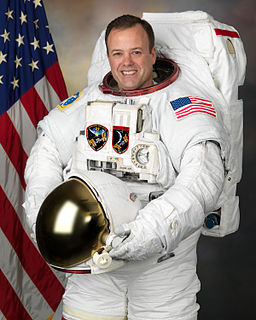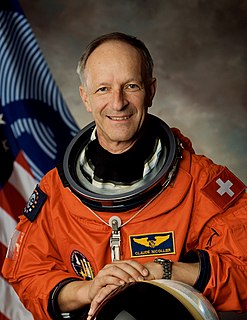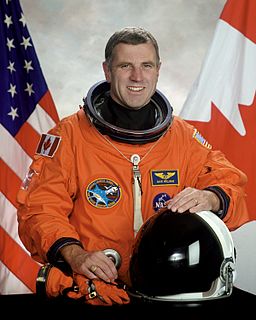A Quote by Richard Jefferies
Related Quotes
If Earth is considered a closed system, there will be less for all forever. The frontier is closed, the wilderness is gone, nature is being destroyed by human consumers, while billions are starving. The future indeed looks grim, and there are, ultimately, no really long-range, positive solutions, nor motivation for making the sacrifices and doing the hard work needed now, unless we understand that we are evolving from an Earth-only toward an Earth-space or universal species.
The whole universe was stilled as if listening for a voice. For the space of one heartbeat there was peace on earth. For one fraction of a moment there was no deed of violence wrought on earth, no hatred, no fire, no whirlwind, no pain, no fear. Existence rested against the heart of God, then sighed and journeyed again.
Going into orbit around Earth - where the space station is today, and where the space shuttles and John Glenn and all those folks go-that's three-eighths of an inch above a schoolroom globe, just FYI. That's not very far from Earth. Yes, you are off Earth, but you're not really going anywhere yet. The moon was the only real destination.
The frontier in space, embodied in the space colony, is one in which the interactions between humans and their environment is so much more sensitive and interactive and less tolerant of irresponsibility than it is on the whole surface of the Earth. We are going to learn how to relate to the Earth and our own natural environment here by looking seriously at space colony ecologies.
On my second space walk, I was riding the Canadarm, heading down toward the payload bay of the space shuttle, and I could see the space shuttle highlighted against the Earth in the background, and there was this black, infinite, hostile void of space. I remember looking down at the Earth and thinking, "Beneath me is a 4½-billion-year-old planet, upon which the entire history of the human species has taken place." That was an incredibly humbling moment, and I had a bit of an epiphany.
For me, a rocket is only a means--only a method of reaching the depths of space--and not an end in itself... There's no doubt that it's very important to have rocket ships since they will help mankind to settle elsewhere in the universe. But what I'm working for is this resettling... The whole idea is to move away from the Earth to settlements in space.
We have indeed been out in space, but some are under the illusion that we have been off Earth. In reality humans have never been off Earth. We have always been on a piece of Earth in space. We survive only as long as we can breathe the air of Earth, drink its waters, and be nourished by its foods. There is no indication that as humans we will ever live anywhere else in the universe. Place, too, is continuously being transformed but only within its own possibilities.






































